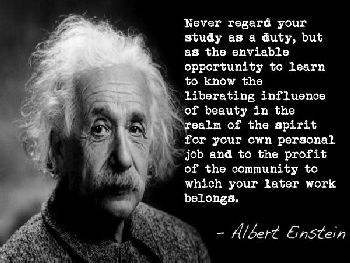JORGE RODRIGUES SIMAO
ADVOCACI NASCUNT, UR JUDICES SIUNT
Words to live

All figures of speech are represented, including numerous quotations from such influential thinkers as Albert Einstein:
Never regard study as a duty.
Never do anything against conscience even if the state demands it.
Never lose a holy curiosity.
The phrasing of this last quotation has always appealed to me, for it suggests an almost religious reverence that Einstein had for open-mindedly exploring every aspect of life. The remark came at the end of a fuller passage that went this way:
One cannot help but be in awe when he contemplates the mysteries of eternity, of life, of the marvelous structure of reality. It is enough if one tries merely to comprehend a little of this mystery every day. Never lose a holy curiosity.
Some of the most important words in my collection have come not from great thinkers or philosophers, but from classic works of fiction:
Never lose a chance of saying a kind word.
These words, from William Makepeace Thackeray’s 1847 classic Vanity Fair, are part of a passage that is still worth reading today, a century and a half after it was first written. In a comparison of the gentle and kindly Mrs. Bute Crawley and the contemptuous and ill-mannered Rawdon Crawley, the narrator says:
The different conduct of these two people is pointed out respectfully to the attention of persons commencing the world. Praise everybody, I say to such; never be squeamish, but speak out your compliment both point-blank in a man’s face, and behind his back, when you know there is a reasonable chance of his hearing it again. Never lose a chance of saying a kind word.
While the quotations to be found in this chapter may be viewed as examples of advice, it is my belief that they go beyond advice per se and enter into the realm of what used to be called pearls of wisdom.
We’ll continue looking at those that can best be described as words to live by.
Never do harm, and whenever possible do well.
Isabelle Allende, from her 2008 memoir The Sum of Our Days
Never esteem anything as of advantage to you that will make you break your word or lose your self-respect.
Marcus Aurelius
This was an entry in the diary of the most philosophically inclined of all Roman emperors. The personal journal of Marcus Aurelius was discovered after his death at age fifty-eight in A.D. 180, and eventually published under the title Meditations. It went on to become one of history’s most influential books, and almost every world leader has had at least a passing acquaintance with it. It also contains this admonition:
Never let the future disturb you.
You will meet it, if you have to, with the same weapons of reason which today arm you against the present.
Never ascribe to an opponent motives meaner than your own.
J. M. Barrie, in a 1922 speech
27.08.2013

